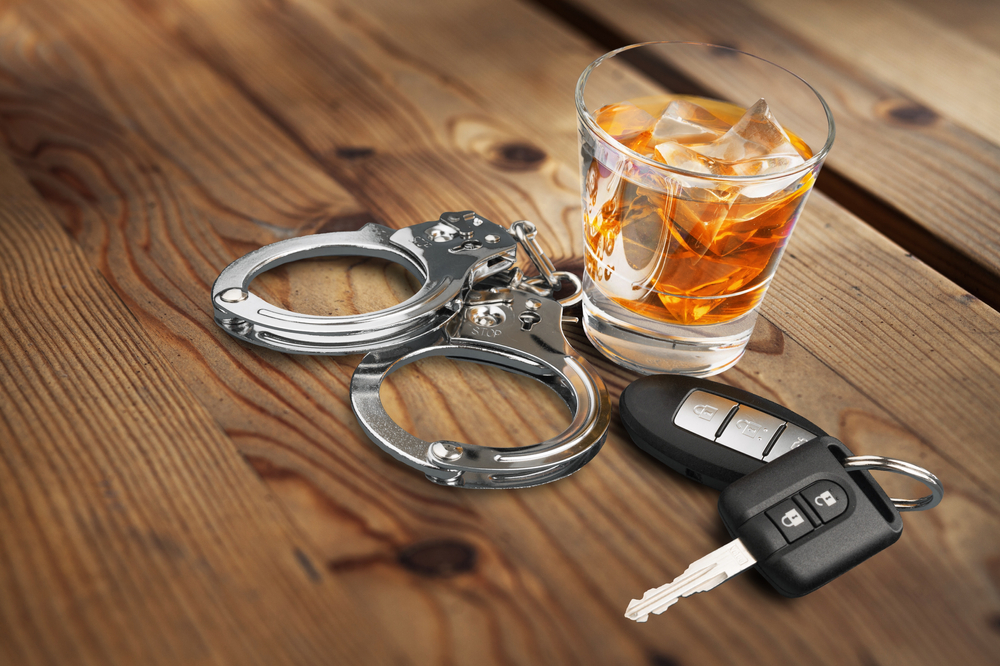Is an Ignition Interlock Device Mandatory in a Texas DUI?
Facing a DUI charge in Texas can be daunting, especially when it comes to understanding the potential consequences, such as the requirement of an ignition interlock device. As a DUI defense lawyer, I know the confusion and anxiety that often accompany these situations. This article will explore the legal aspects of ignition interlock devices in Texas and how a skilled DUI defense attorney can help navigate this challenging process.
Our team of attorneys is resourceful, experienced, and knowledgeable regarding your rights. To learn more about how we can help you, call Low Law Firm today at 325.455.1889.

Understanding Texas DUI Laws and Ignition Interlock Devices
Texas has strict laws regarding driving under the influence (DUI) and driving while intoxicated (DWI). According to the Texas Department of Public Safety, an ignition interlock device may be required for certain DUI offenses. This device is essentially a breathalyzer connected to your vehicle’s ignition system, which prevents the car from starting if it detects alcohol on your breath.
When Is an Ignition Interlock Device Mandatory in Texas?
In Texas, an ignition interlock device may be mandatory in the following situations:
-
Second or subsequent DUI/DWI conviction
-
First DUI/DWI conviction with a blood alcohol concentration (BAC) of 0.15 or higher
-
Intoxication assault or manslaughter conviction
-
As a condition of obtaining an occupational driver’s license after a DUI/DWI suspension
Navigating the Legal Process with a DUI Defense Lawyer
Working with an experienced DUI defense lawyer is crucial when facing a DUI charge in Texas. A skilled attorney, such as those at Low Law Firm, can help you understand your legal rights, explore potential defenses, and work towards minimizing the impact of a DUI conviction on your life. They can also guide you through obtaining an occupational driver’s license and complying with ignition interlock device requirements, if necessary.
The Importance of Acting Quickly in a Texas DUI Case
If you’ve been charged with a DUI in Texas, it’s essential to act quickly and seek the assistance of a knowledgeable DUI defense lawyer. Time is of the essence, as you may have a limited window to request an Administrative License Revocation (ALR) hearing to contest the suspension of your driver’s license. A DUI defense attorney can help you navigate this process and work to protect your driving privileges.
Choosing the Right DUI Defense Lawyer for Your Case
When selecting a DUI defense lawyer, choosing an attorney with extensive experience handling DUI cases in Texas is essential. Look for a lawyer who stays up-to-date on the latest changes in Texas DUI laws and has a track record of successfully defending clients facing DUI charges. At Low Law Firm, our team of skilled DUI defense attorneys is dedicated to providing personalized, aggressive representation to protect your rights and fight for the best possible outcome in your case.
The Long-Term Consequences of a Texas DUI Conviction
A DUI conviction in Texas can have far-reaching consequences that extend beyond the requirement of an ignition interlock device. These may include fines, jail time, increased insurance rates, and a criminal record that can impact your employment and housing opportunities. Working with a DUI defense lawyer can help you understand these potential consequences and develop a strategy to minimize their impact on your life.
FAQs
-
How long will I need to have an ignition interlock device installed after a Texas DUI conviction?
The duration of an ignition interlock device requirement varies depending on the specific circumstances of your case, such as your BAC level and whether you have prior DUI convictions. A skilled DUI defense lawyer can help you understand the potential length of the requirement in your situation.
-
Can I refuse to install an ignition interlock device after a Texas DUI conviction?
If an ignition interlock device is mandated by the court or required as a condition of obtaining an occupational driver’s license, refusing to install the device can result in additional legal consequences, such as fines or jail time. A DUI defense attorney can help you navigate these requirements and ensure compliance with court orders.
-
How much does an ignition interlock device cost in Texas?
The cost of an ignition interlock device in Texas varies depending on the provider and the time the device is required. Typically, there is an installation fee and a monthly maintenance fee. A DUI defense lawyer can help you understand the potential costs associated with an ignition interlock device in your case.
-
Can I drive someone else’s vehicle without an ignition interlock device after a Texas DUI conviction?
If you are required to have an ignition interlock device installed as part of your DUI conviction, you may be restricted to driving only vehicles equipped with the device. Driving a car without an ignition interlock device when required can result in additional legal consequences. A skilled DUI defense attorney can help you understand your specific restrictions and ensure compliance with court orders.
-
How can a Texas DUI defense lawyer help me avoid an ignition interlock device requirement?
A skilled DUI defense lawyer will thoroughly investigate your case, challenge any improper police procedures, and work to negotiate a favorable plea bargain or fight for an acquittal at trial. By building a solid defense strategy, a DUI defense attorney can help you avoid an ignition interlock device requirement or minimize the duration of the requirement. At Low Law Firm, our experienced DUI defense lawyers are committed to protecting your rights and achieving the best possible outcome in your case.
An Abilene DUI Attorney Can Defend Your Rights
Your dedicated DUI defense attorney will thoroughly review the evidence, identify potential weaknesses in the prosecution’s case, and develop an effective defense strategy tailored to your unique circumstances.
Call Low Law Firm at 325.455.1889 or complete our online form to schedule your free consultation.

